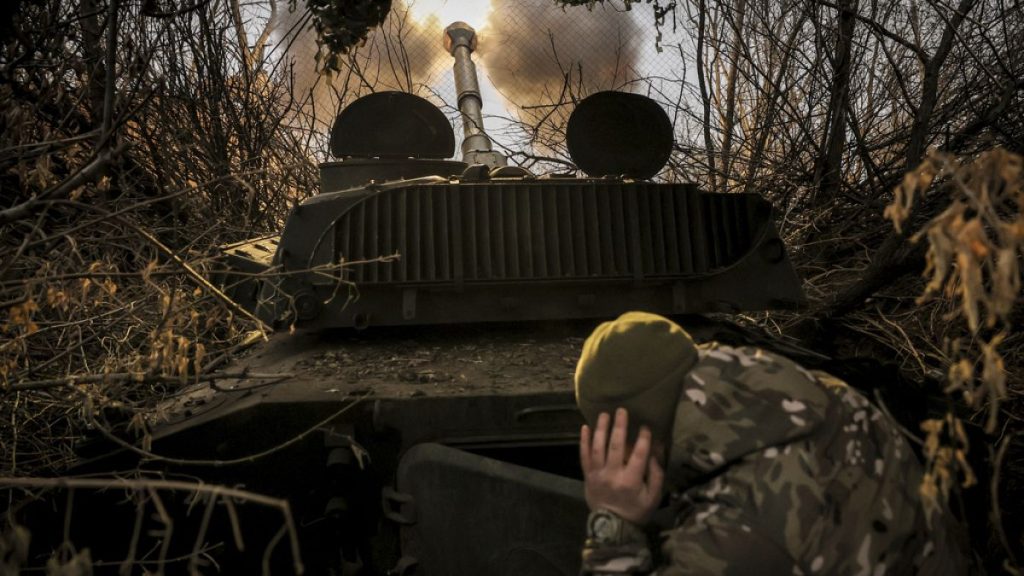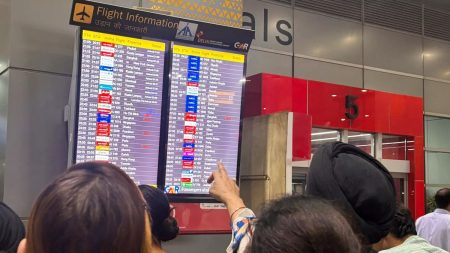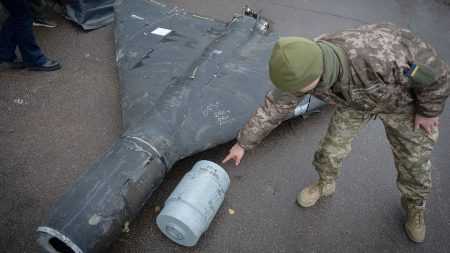The ongoing conflict in Ukraine has forced the Ukrainian military into difficult decisions regarding troop deployments, particularly in the fiercely contested Donetsk region. Soldier Mykola’s* account reveals the increasing pressure on rear echelon units like his air defense detachment to supply manpower for the front lines. This redeployment strategy highlights the strain on Ukraine’s resources and the difficult balancing act between maintaining essential support functions and bolstering depleted infantry units facing relentless Russian assaults. The lack of adequate training for redeployed personnel, coupled with the emotional toll of potential front-line service, further exacerbates the challenges faced by soldiers like Mykola, who joined the military to protect his country but now faces the prospect of combat with minimal preparation.
Mykola’s story underscores a growing concern within the Ukrainian military: the increasing need to redeploy personnel from specialized units to the demanding infantry roles on the front lines. This shift in strategy reflects the escalating intensity of the fighting in eastern Ukraine, where Russian forces have been making significant gains. The limited pool of eligible soldiers for redeployment, excluding women, older men, and those with health issues, puts further pressure on units like Mykola’s. The apparent lack of systematic training for redeployed personnel, coupled with the potential for commanders to use redeployment as a means of removing undesirable soldiers, raises serious concerns about the preparedness and morale of those sent to the front. This situation creates an atmosphere of anxiety and uncertainty, as soldiers like Mykola grapple with the possibility of being thrust into combat roles for which they are ill-equipped.
The Ukrainian military’s reliance on redeployments from support units illuminates a complex web of challenges. While the need to reinforce front-line troops is undeniable, stripping essential personnel from rear echelon units like air defense weakens critical support structures. These units are vital for maintaining supply lines, communication networks, and medical services, all of which are crucial for the effectiveness and survival of front-line forces. Mykola’s account suggests that these redeployments are not only disruptive to the functioning of these essential units but also detrimental to morale. The loss of trained personnel in specialized fields like air defense and drone operation further compounds the problem, as replacing these individuals requires significant time and resources.
The practice of redeploying soldiers from support roles to combat positions also raises ethical questions about the treatment of military personnel. Soldiers like Mykola, who volunteered for specific roles based on their skills and understanding of the risks involved, now face the prospect of being forced into entirely different, and potentially more dangerous, positions. This disregard for individual skills and preferences, coupled with the inadequate training provided to redeployed soldiers, paints a concerning picture of the current state of the Ukrainian military. The perceived lack of value placed on soldiers’ lives, as expressed by Mykola, contributes to a sense of disillusionment and contributes to issues of desertion and draft evasion.
The increasing pressure on Ukraine to reinforce its front lines underscores the wider geopolitical context of the conflict. Despite significant military aid from Western partners, Ukraine continues to face challenges in acquiring the necessary equipment and resources to effectively counter Russian advances. The ongoing debate within NATO and among Western allies regarding the provision of certain weapons systems, such as long-range missiles, further complicates the situation. While Ukraine seeks to bolster its defenses on multiple fronts, including air defense capabilities, the immediate need for infantry reinforcements in the east has forced difficult choices. The strain on Ukraine’s military resources is palpable, and the stories of soldiers like Mykola highlight the human cost of this ongoing conflict.
The redeployment of soldiers like Mykola from support units to the front lines not only reflects the immediate tactical demands of the war but also reveals deeper systemic challenges within the Ukrainian military. The lack of adequate training, the emotional strain on soldiers facing redeployment, and the depletion of essential support units all point to a growing need for strategic adjustments. The concerns expressed by Mykola about the perceived disregard for soldiers’ lives and the declining morale within the military underscore the importance of addressing these issues. As the conflict continues, finding a sustainable balance between reinforcing front-line troops and maintaining essential support functions will be crucial for Ukraine’s ability to effectively resist the ongoing Russian offensive.










